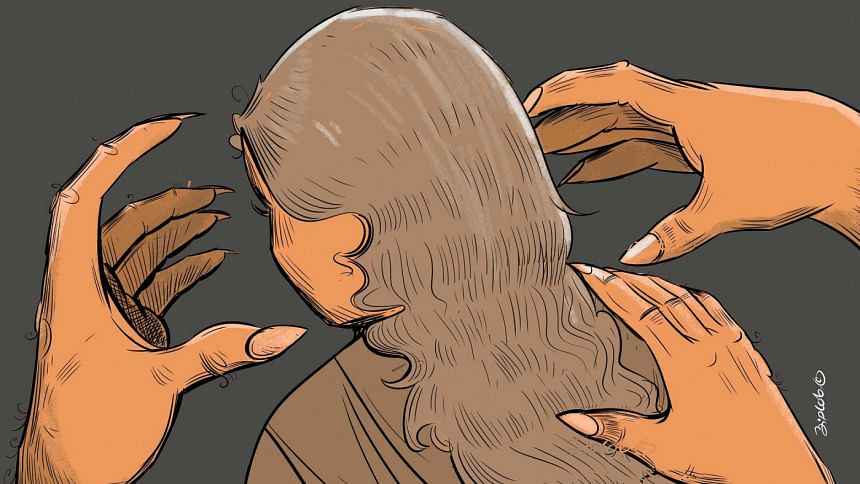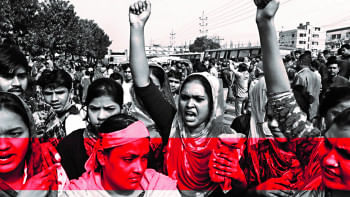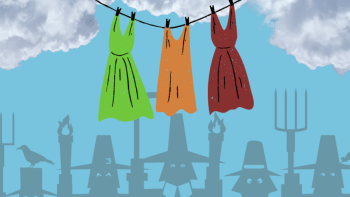The cost of a complaint

In 2013, in the case of Dilip vs State of Madhya Pradesh, the Supreme Court of India said, "The prosecutrix was supposed to attack the appellant like a wild animal, but she did not even resist. Thus, her conduct suggested only and only, her consent and will."
In the case of Raja and others v State of Karnataka, while acquitting the appellants in a case of gang rape, it was held, "Her [the victim's] post-incident conduct and movements are also noticeably unusual. Instead of hurrying back home in a distressed, humiliated and a devastated state, she stayed back in and around the place of occurrence, enquired about the same from persons whom she claims to have met in the late hours of night, returned to the spot to identify the garage and even look at the broken glass bangles, discarded litter etc… Her vengeful attitude in the facts and circumstances, as disclosed by her, if true, demonstrably evinces a conduct manifested by a feeling of frustration stoked by an intense feeling of deprivation of something expected, desired or promised. Her confident movements alone past midnight, in that state are also out of the ordinary… The medical opinion that she was accustomed to sexual intercourse when admittedly she was living separately from her husband for one and a half years before the incident also has its own implication."
For rape victims, their body, soul, and integrity are not only stripped off behind closed doors, they are also decimated in an open forum. Either way, there is no going back. That's the cost they pay for filing a complaint. It dehumanises them and no material recompense or punishment can fully restore the intangible, invisible harm.
When a complaint of sexual violence comes as a formal allegation, how we hear the stories in those complaints matters. When institutions and people in power dismiss such stories because they think the victim was not "victimised enough," it effectively dismisses the trauma that they went through.
A complaint is a path towards resistance. The institution becomes what you stand up against. At times, it feels like one is getting somewhere. At other times, the wall comes down and we realise that no matter how far we go, we would not go far enough. It will be as if the trauma never happened. You might make a complaint because you are in an intense and difficult situation, and a complaint can be an effort to get out of that situation. But trying to get out of a situation can sometimes make it even more intense and difficult.
The word complaint derives from Old French, complaindre, "to lament," an expression of sorrow and grief. Lament is from Latin, lamentum: "wailing," "moaning," "weeping." Through a complaint, those who challenge power become sites of negation.
Making a complaint about harassment can often feel like being harassed all over again—being subjected, again, to another's will. You know that what is happening is not what was supposed to happen. You can feel that something or someone is pulling the strings. But you don't know what or who it is. You experience a disconnect between paper and practice.
The person who makes the complaint—who is often already experiencing the trauma or stress of the situation they are complaining about—ends up having to direct an unwieldy process. The person who puts the complaint forward ends up having to scream the same facts again and again, reliving the trauma over and over again. Yet, somehow that's not sufficient to prove that she's "enough" of a victim.
So many complaints are not made because the person who would have to make them knows that to complain would be to be derailed; it would mean not being able to go where you want to go. You worry that to complain would be to suffer being seen as "causing drama," that to complain would lead to a questioning of your integrity.
In rape and other sexual violence cases, often the court is hearing complaints but in actuality the complaints are not being heard. It takes work to hear complaints, because you have to dismantle the barriers to understand what is said, what is done, both invisible and inaudible. By barriers, I mean internal biases and prejudices, because when complaints are not heard, the complainant leaves, but the crime stays and mutates.
S Arzooman Chowdhury is MPhil student at the University of Cambridge.
Views expressed in this article are the author's own.
Follow The Daily Star Opinion on Facebook for the latest opinions, commentaries and analyses by experts and professionals. To contribute your article or letter to The Daily Star Opinion, see our guidelines for submission.

 For all latest news, follow The Daily Star's Google News channel.
For all latest news, follow The Daily Star's Google News channel. 










Comments